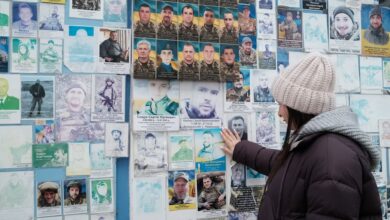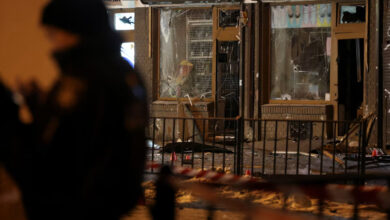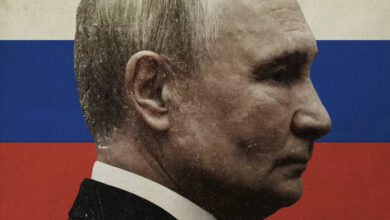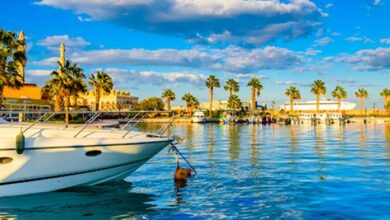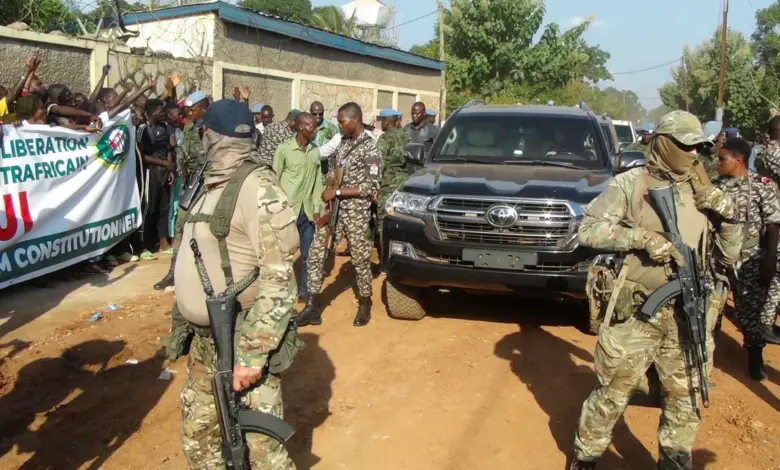
While Russian ally Bashar al-Assad was being toppled by rebels in Syria, another friend of Moscow, President Faustin-Archange Touadéra, was being chaperoned by Kremlin-backed mercenaries in the conflict-ridden Central African Republic (CAR), where armed groups are yearning to oust him.
“Without the protection of Wagner (a private Russian military force), he (Touadéra) could not be president at this time,” Aboubakar Siddick, spokesperson for an alliance of rebel groups in CAR, known as the Coalition of Patriots for Change (CPC-F), told CNN.
Siddick said that the CPC-F rebels were feeling “inspired” by Assad’s ouster, stating: “Touadéra’s dismissal is imperative.”
In a sign of the importance Russia places in its relationships in Africa, Vladimir Putin met Thursday with Touadéra in Moscow, in what were the Russian president’s first international talks this year.
“This is connected to the fact that we are developing relations with the Central African Republic in all possible areas, including highly sensitive areas related to security. And we intend to develop this cooperation further,” said Kremlin spokesman Dmitry Peskov ahead of the meeting.
Decades of conflict in CAR mirror the instability in other fragile African states where reliance on Russia’s military offerings has become increasingly prevalent, amid an aggressive push by Moscow to lessen Western influence on the continent.
As Russia’s foothold in Africa expands – notably in the mineral-rich Sahel region that is beset by recurring coups, armed rebellion and extremist insurgency – anti-Western sentiments, partly fueled by Russian propaganda, are engineering the exit of Western troops from swathes of territory. The Kremlin is the most favored to fill the vacuum they leave.
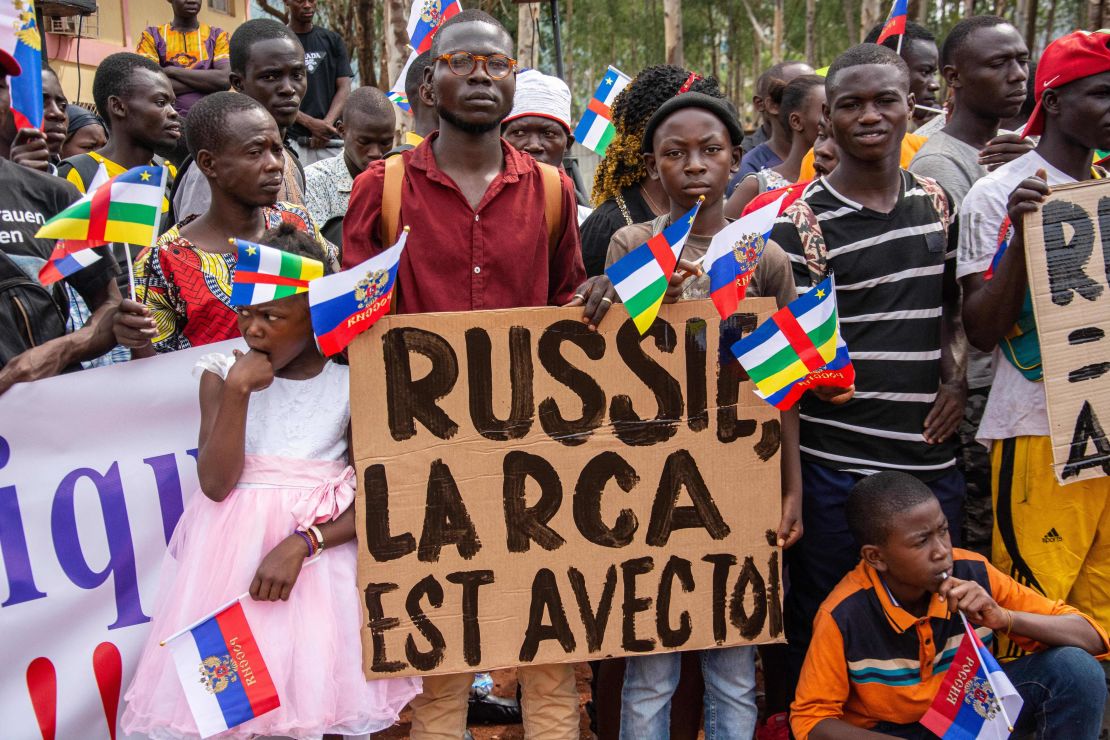
Ivory Coast and Chad are the latest in a string of former French colonies in West and Central Africa to demand the withdrawal of French and other Western forces from their territories, treading in the path of Niger, Mali and Burkina Faso. Those three, all now controlled by juntas, have since turned to Russia for security support, ignoring calls from their Western ex-partners for a swift return to civilian rule.
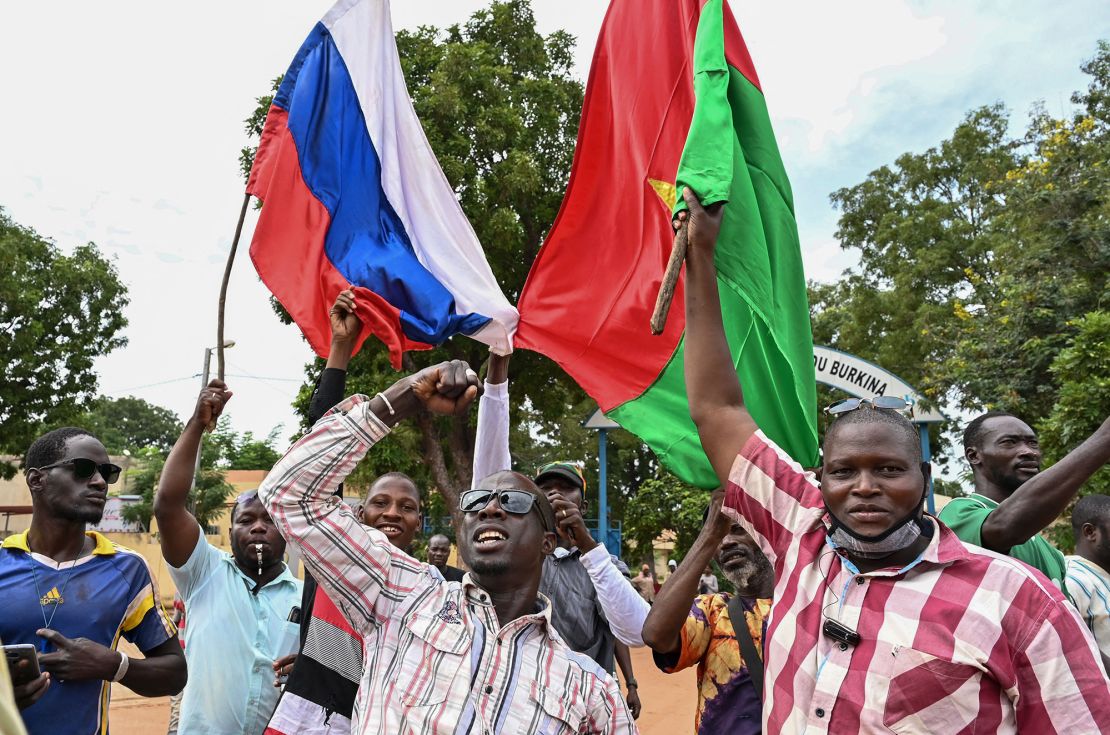
Moscow is also a sought-after partner by non-French former colonies such as Equatorial Guinea, which hosts an estimated 200 military instructors deployed by Russia in November to protect the Central African nation’s presidency. Its authoritarian leader President Teodoro Obiang, 82, has ruled the tiny, oil-rich country for 45 years following a coup in 1979.
Outside West and Central Africa, Russia is bolstering its presence in the continent’s north, where Wagner forces back eastern Libya’s de facto ruler, Gen. Khalifa Haftar.
Following Assad’s ouster as Syrian leader last month, Moscow has operated multiple flights to and from an airbase in eastern Libya — some headed to Mali, CNN found — suggesting a shift from the Syrian bases that have served as a hub for its military operations in Africa and the Mediterranean region.
Statues honor Wagner figures in CAR
In CAR, an erstwhile French colony, the Russian mercenaries that have operated in the country since 2018 have become the dominant force, following the final exit of French troops in 2022.
At Thursday’s meeting with Putin, Touadéra thanked the Russian leader for supporting his nation and helping it to achieve stability.
“Today, the army trained by Russian instructors is capable of repelling terrorists and anyone who encroaches on the territory of CAR. We will continue to work together to strengthen security throughout the country, at the borders, wherever the threat comes from. Russian instructors are truly professionals,” he said.
The French — who deployed to CAR to help stabilize the nation after a coup in 2013 sparked a civil war — retreated over what the armed forces ministry said was CAR’s failure to halt “massive disinformation campaigns” targeting France amid a competition with Russia for influence.
French President Emmanuel Macron last week slammed African leaders for showing “ingratitude” over the deployment of his nation’s troops in the Sahel, saying that Sahel states only remained sovereign because of the arrival of French forces.
Macron also dismissed the notion that French troops had been expelled from the region, adding that France was only “reorganizing itself” on the continent. “We left because there were coups d’état… France no longer had a place there because we are not the auxiliaries of putschists.”
A US State Department report published last February outlined how Kremlin-funded disinformation had taken root across Africa with the creation of a pro-Russia news agency called the “African Initiative” — which, with the help of hired local journalists, markets Moscow to the continent while tarnishing the West’s reputation.
CAR’s army, bolstered by Russia’s Wagner mercenaries, United Nations forces and Rwandan troops, has battled to keep armed groups such as the CPC-F at bay and reclaim territory seized by rebels. But it is the Russians who are widely credited with helping the nation stave off collapse.
Statues honoring the late Wagner leader, Yevgeny Prigozhin, and top commander, Dmitry Utkin, were unveiled in CAR’s capital, Bangui, in December, a Telegram channel linked to the mercenary group reported. Both men were killed in a plane crash northwest of Moscow in August 2023, two months after they had launched an abortive rebellion against Russia’s military leadership.
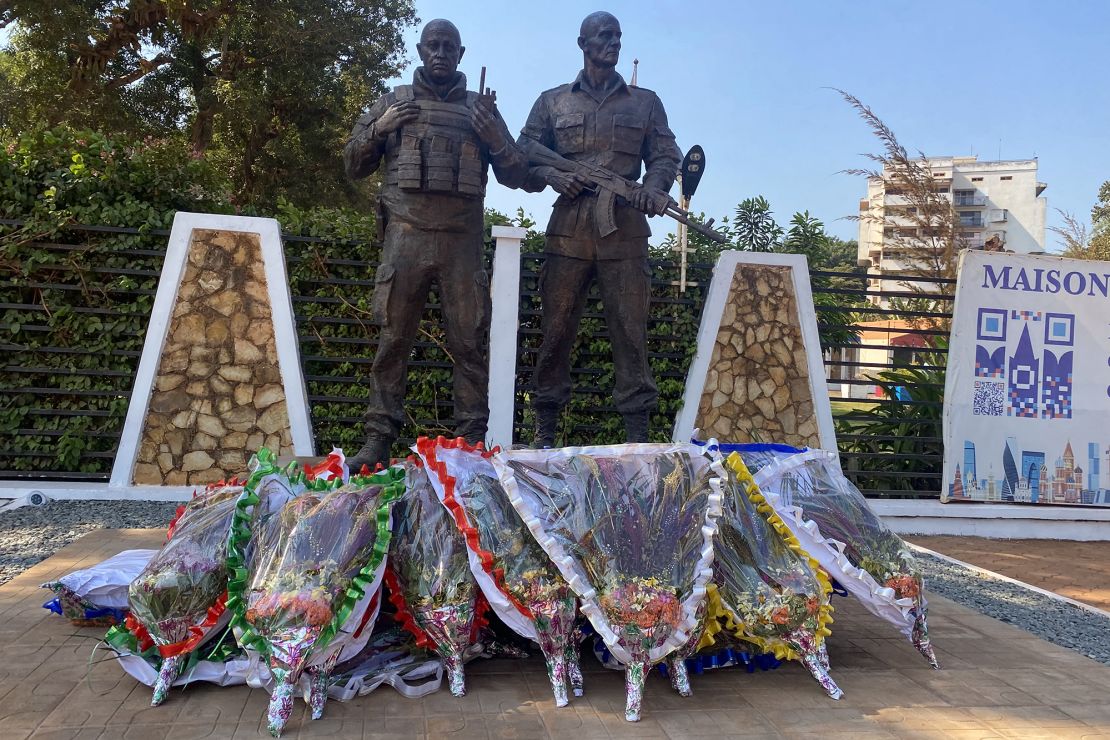
Wagner, rebranded as the Africa Corps and placed under the umbrella of the Russian defense ministry after Prigozhin’s death, still operates under the Wagner brand in CAR, where its mercenaries are possibly the group’s most active in Africa.
CAR’s communications minister, Maxime Balalou, told CNN the statues were “inaugurated as part of the cooperation between our country and Russia,” adding that a bilateral defense agreement “allowed Russia to provide us with weapons” as well as “handling and training for our defense and security forces, (and) assisting our armed forces on the ground.”
Another monument, depicting Wagner troops guarding a local woman and her children, was erected in Bangui three years ago.
“Russia’s significant contribution helped stabilize and secure CAR,” Balalou said, adding that “at the height of CAR’s crisis, we were abandoned… but Russia responded.”
Protection – at what cost?
Not everyone views Russia’s involvement in Africa through a positive lens.
The Kremlin’s guns-for-hire mission is far from humanitarian, according to Irina Filatova, a Russian historian specializing in African history. It’s a mixed quest for power and cash, she said, as Moscow hunts for alternative revenue to sustain its war in Ukraine amid a raft of Western sanctions.
“The Russians are providing this support (to troubled African nations) in exchange for either the full control or a percentage of the control from their mineral resources. That is what Russia needs: It needs funding, and it needs influence. It helps its war in Ukraine,” Filatova, a senior research associate at the University of Cape Town, told CNN from South Africa.
In CAR, Martin Ziguélé, a former prime minister and current opposition MP, told CNN that Wagner’s remuneration for providing military services to his nation “is done in an extremely hidden and discreet manner” by the Touadéra-led government.
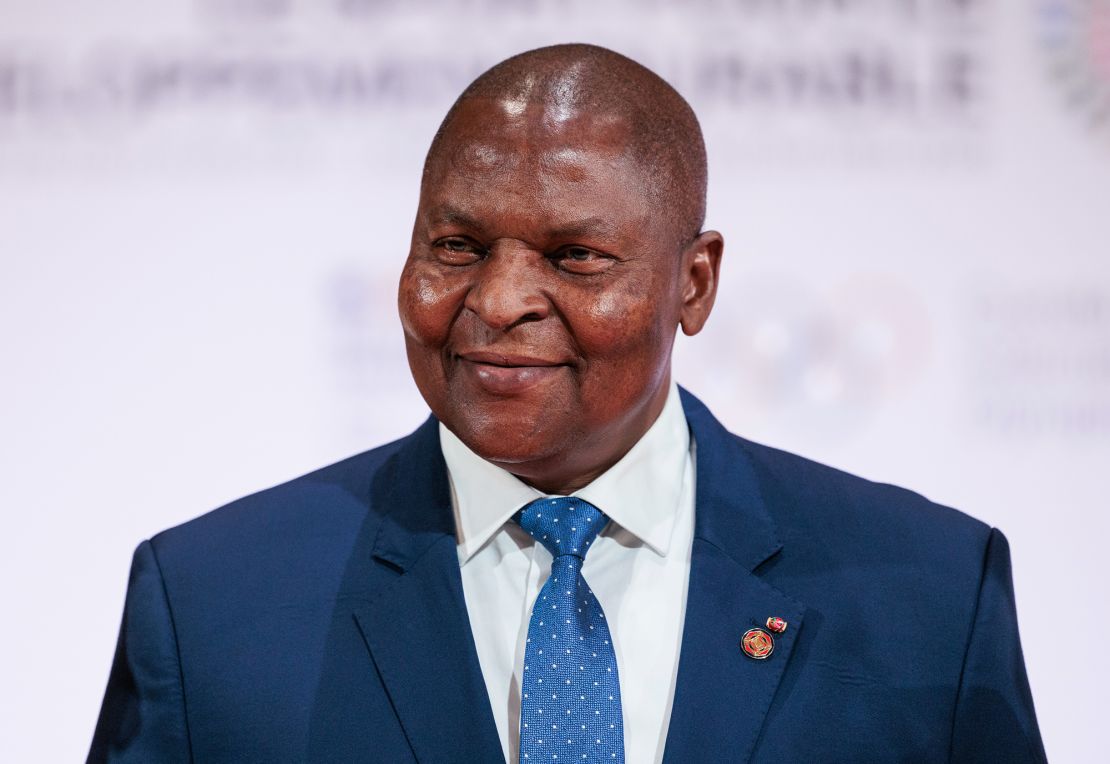
Previous CNN investigations found that companies linked to ex-Wagner leader Prigozhin had won concessions to mine gold and diamonds in CAR, where nearly 70% of the population lives in extreme poverty — the fifth highest poverty rate in the world, according to a World Bank assessment in 2023.
One of those companies owns rights to the Ndassima gold mine, located 440 kilometers (273 miles) east of Bangui, whose gold proceeds are valued at over $1 billion, according to the US Treasury Department.
“Authorities have no right of inspection,” Jean-Fernand Koena, who heads a union of CAR’s journalists, told CNN about what he said was Wagner’s total control of the Ndassima mine.
CAR’s government, he said, cannot monitor “where the gold that they (Prigozhin-linked company) mine goes,” adding that there is “neither public accounting nor information from the ministry of mines.”
CNN has contacted the mines ministry for comment.
The US Treasury Department said in a statement announcing sanctions in June 2023 that the company, Midas Ressources, had “in conjunction with the Wagner Group” denied “CAR government officials the ability to inspect the Ndassima mine.”
The same statement said another company affiliated with Prigozhin, named as Diamville, had “shipped diamonds mined in the CAR to buyers in the UAE and Europe.”
The Treasury further reported that in 2022 (the year Russia launched its full-scale invasion of Ukraine), two companies – Diamville and Industrial Resources – took part in a gold-selling scheme to convert CAR-origin gold into US dollars and that the latter knowingly “participated in the transfer by hand of cash to Russia” — in a bid to bypass US sanctions on Russian financial institutions.
‘Win-win cooperation’
A report by the World Gold Council, an international association of gold producers, puts Wagner’s earnings from its illicit gold dealings at an estimated $2.5 billion since the start of Russia’s war in Ukraine.
“This includes the profits from mines and refineries under Russian control, as well as retainers for security services, in CAR, Sudan and Mali,” the report said.
In 2022, CNN also investigated Russia’s plunder of Sudan’s gold, uncovering more than a dozen Russian gold-smuggling flights out of the war-torn country in exchange for backing its military leadership.
The following year, CNN uncovered evidence that Wagner had been arming a Sudanese militia group, the Rapid Support Forces (RSF), which is engaged in a bitter war with Sudan’s armed forces for control of the country. Both Prigozhin and the RSF denied this at the time.
For CAR, the murky underbelly of its military partnership with Russia also comes “at the cost of serious violations of human rights,” Koena said.
Wagner’s alleged atrocities in Africa are widely reported. In CAR, its forces were found to have “summarily executed, tortured, and beaten civilians” since 2019, according to a 2022 report by the rights group Human Rights Watch (HRW).
Balalou, the communications minister, did not address these allegations but told CNN: “We are developing a new form of win-win cooperation with Russia.” He didn’t specify what this entailed.
Vladislav Ilin, a spokesman for the Russian Embassy in CAR, did not respond to CNN’s request for comment.
Outside CAR, similar atrocities, including the killing of civilians, have been committed by Wagner, the HRW claimed in another report last year, this time uncovering the group’s alleged deadly activities in Mali, where it partners with the West African nation’s military to fight insurgents.
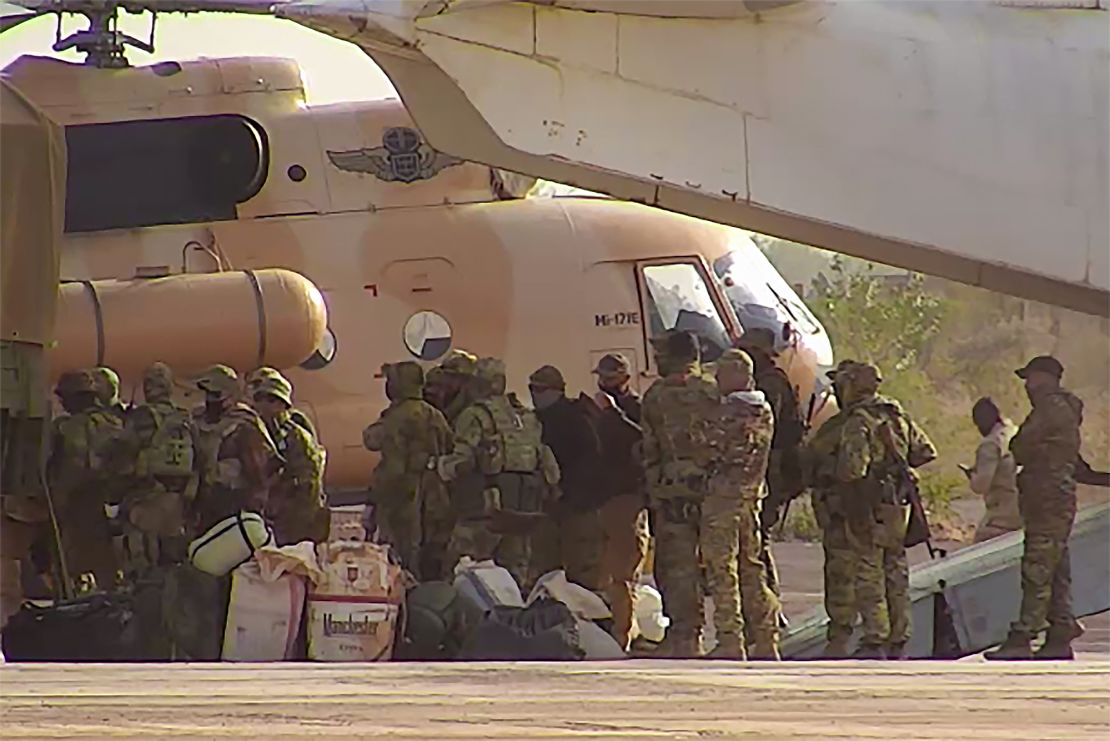
Wagner has suffered some of its worst losses on the continent in Mali.
In response to a question from CNN about the nature and scope of Russia’s military partnerships on the continent, the Kremlin’s Peskov said: “We are purposefully developing our cooperation with African countries, including interaction in sensitive areas related to security.”
The Russian Ministry of Defense has not yet responded to CNN’s request for comment on the widespread allegations of abuse and misconduct attributed to Wagner forces in CAR and Mali.
Competition for influence
The Kremlin isn’t the only foreign power jostling for influence in Africa.
With the US largely focused on the Middle East, China has made deep inroads into the continent over decades, expanding military ties and claiming the title of Africa’s top trading partner for the past 15 years, according to Beijing.
China has also financed tens of billions worth of development projects across Africa, including under its flagship Belt and Road global infrastructure drive launched in 2013.
Projects under the initiative’s umbrella have generated accusations of lax environmental and labor standards, as well as risky lending, with critics saying China has saddled low- and middle-income governments with overly high levels of debt relative to their GDPs. Beijing has sought to push back on Western criticism over those debts.
Mutasim Ali, a legal adviser at the Raoul Wallenberg Centre for Human Rights, a Canadian NGO, told CNN that in his view, Russia and China tend to share a common trait in their dealings with Africa.
“Russians and Chinese do not care about democracy, human rights violations, corruption, and the like… They’re happy to protect dictators and human rights violators. That’s one of the reasons why Russians are getting a lot more influence,” he said, contrasting their approach with Western powers such as the US and France, who prioritize democracy and human rights protections.
A report by the South Africa-based Institute for Security Studies in 2022 highlighted concerns over abusive labor practices, unsafe working conditions and lack of transparency among Chinese-owned companies operating in southern Africa.
The Chinese Mission to the African Union has not yet responded to CNN’s request for comment on the claim China does not prioritize democracy and human rights protections in its dealings with African states.
China and Russia were the main arms suppliers to sub-Saharan Africa between 2019 and 2023, according to data from the Stockholm International Peace Research Institute.
Addressing African delegates at a summit in Beijing in September, President Xi Jinping claimed ties between Beijing and Africa were their “best in history,” as he pledged billions of dollars in financial support for the continent, in addition to $140 million in military aid.
A Chinese foreign ministry statement issued after the summit said Beijing was committed to building a “shared future” with Africa and that “China will continue to respect African countries’ political and economic choices based on their own national conditions and honor the principles of noninterference in African countries’ internal affairs.”
In Koena’s view, China’s policy of non-interference speaks to how different powers operate in Africa, with China focusing on economics and Russia on security.
“In a renewed resentment against Western policy in Africa, China is imposing itself on the economic level through trade and infrastructure while Russia wants to be the military response for the stability of sometimes autocratic regimes,” he said.
For Koena’s country, CAR, which has experienced decades of instability, “the message of peace and security gets across more quickly than the economy,” he added. For as long as this continues, the Russian military presence will likely be welcomed by its leaders.
CNN’s Anna Chernova contributed to this report.

